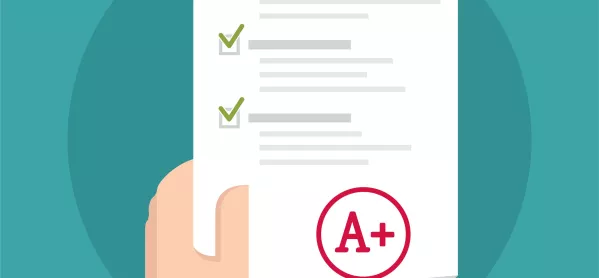“Marking practice that does not have the desired impact on pupil outcomes is a time-wasting burden for teachers that has to stop.” The opening to the Department for Education’s independent report on marking is refreshingly unequivocal.
And yet, eighteen months after the report was published, too many teachers up and down the country are still cracking out the midnight oil and triple marking every book in sight. Part of the problem, of course, is that few teachers will have had the time to actually read the report. And that’s probably because we’re too busy working.
It can’t continue like this. Teachers burning out and leaving the profession is not only damaging to their mental health, it is harmful for our education system too. It’s easy (and somewhat cathartic) to search for the pantomime villain in response, but the truth is that everyone has some blame to shoulder, and that includes teachers. That surely means we all have a responsibility to take action.
However, the independent report on marking - along with Ofsted’s assurance that they expect no specific frequency, type or volume of marking - should give teachers the confidence to collectively challenge unrealistic school policies and classroom practice. Any school leader who uses the phrase “It’s what Ofsted wants…” is, frankly, misguided. The key message from the report should have teachers whooping in the staffroom: marking should be “meaningful, manageable and motivating”.
The first step to a happier work-life balance is to sit down together as a team and read through the report (it is only 12 pages, and has an eight-point summary). At my school, the only question we ever ask each other is: “Will this move children’s learning on?” However, the report caused us to rethink even this test. The trouble is that almost everything “works” in education. We needed a smarter approach, and so began to think not only about efficacy, but about efficiency.
While there are many practices in teaching that are effective, not all are efficient. Triple marking is a good example. This approach saw teachers marking children’s work, letting them respond, then responding to that response. Was it effective? Probably, as long as the feedback was decent. Was it efficient? Not one bit.
Why write out “Remember to use a capital letter for Macbeth” thirty times, when you can just teach all the children this at the start of the next lesson and have them correct it at the same time? This whole class feedback response is gaining some traction in schools, and there are many handy pro formas available online to help you structure your notes as you read through a set of books.
This is just one of a number of approaches that we have taken to streamline feedback. Another is ensuring that the majority of our feedback happens within a lesson. In practice, it means the teacher, armed with a clipboard, visiting each child during their independent task to note down success and intervene at the point of confusion.
Finally, we now comparatively judge longer pieces of writing at the end of each term. Every child writes up their best piece of work onto bar-coded paper, which is then scanned and uploaded to the online system. Teachers then judge the scripts online, giving them a rank order and an absolute progress measure based on previous writing.
This does not mean a complete abandonment of any written marking. There are times when a personalised comment is necessary and can be extremely powerful. Every now and then, I’ll even sit down and write a response to every child - perhaps if they’ve just finished a particularly long piece of writing. But, such occasions are few and far between, and the work is usually spread across a week.
Let me be quite clear: marking every book, every day is not sustainable. If your marking policy mandates this then it would be wise to suggest a discussion with your leadership team - taking in senior leaders, teachers and support staff - to review and streamline the policy to ensure it is both effective and efficient. Using the recommendations in the government’s independent report as a reference and a starting point for your review will give you a guide to frame the discussion.
Ultimately, success relies on everyone in a school agreeing on a sensible approach to marking, and building a culture of self and peer challenge to stick to it. It may feel strange to begin with, you may even feel a little guilty, but changing the culture of over-marking will only be effective if we all do it together.
Jon Brunskill is a year four teacher at Reach Academy Feltham. You can follow him @jon_brunskill
Read more about the government’s policies on reducing teacher workload here: https://www.gov.uk/government/publications/reducing-teachers-workload/reducing-teachers-workload


